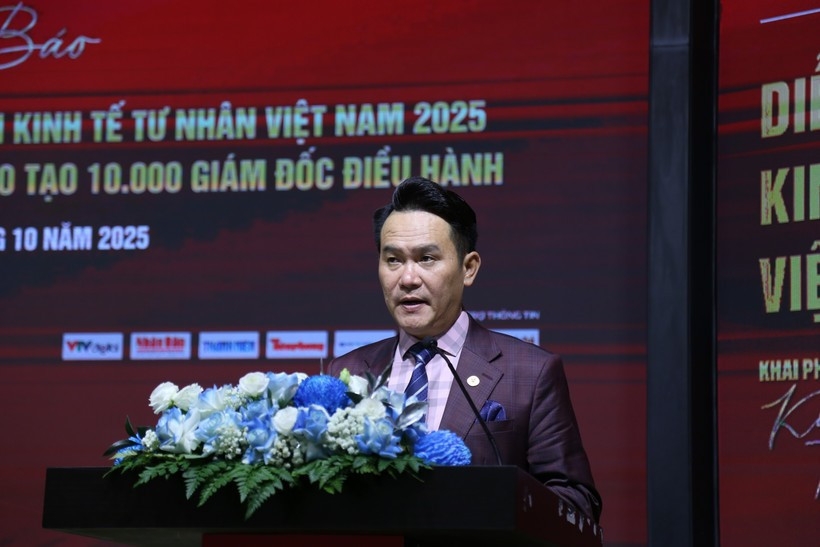Vietnam to train 10,000 CEOs to strengthen private sector development
The Vietnam Young Entrepreneurs Association (VYEA) announced in Hanoi on October 8 the summary report of Vietnam Private Sector Forum 2025 (VPSF 2025) and launched a programme to train 10,000 chief executive officers (CEOs) from 2025 to 2030.

VPSF 2025, organised by the VYEA under the direction of the Ho Chi Minh Communist Youth Union and the Vietnam Youth Federation, and in coordination with the Vietnam Association of Small and Medium Enterprises, served as a national platform for policy dialogue and action between the government and the business community from July to September.
Speaking at the press conference, Dang Hong Anh, Chairman of the VYEA and head of VPSF 2025, stressed that the association will finalise and release the VPSF 2025 summary report, which compiles detailed recommendations from the private sector. The report will be submitted to the Government and relevant agencies to support policy formulation and revision.
He added that VYEA will not only summarise the proposals but also establish a mechanism to monitor and evaluate how government bodies respond to and implement business recommendations.
The association will work closely with ministries, agencies, and localities to ensure that the voices of enterprises are heard and acted upon, he said.
The summary report highlights critical issues related to institutions, innovation, international integration, and corporate governance, while also putting forward several breakthrough proposals, notably, the training programme for 10,000 CEOs to help build a new generation of Vietnamese business leaders with vision, integrity, and capability for sustainable growth.
In the coming time, the VYEA plans to develop a digital feedback channel for transparent and real-time interaction with policymakers, as well as hold regular policy dialogue sessions to follow up on the progress of recommendations. This initiative reflects the association’s strong commitment to ensuring that the forum’s outcomes translate into concrete policy actions, thereby removing bottlenecks and fostering the growth of the private sector.
To concretise the forum’s results, the association officially introduced the 10,000 CEO training programme in the 2025–2030 period. The programme will be implemented in three phases. A pilot phase to be conducted in the last quarter of this year is expected to train first 1,000 CEOs; the acceleration and expansion (2027–2029) for 7,000 more CEOs; and sustainability and dissemination phase (by 2030) will complete the 10,000-CEO target and expand its impact nationwide.
The curriculum is built around eight core leadership competencies, covering business strategy, financial management, human resources, operations, risk management, technology, innovation, and international integration.
According to the organisers, enhancing leadership capacity is key to strengthening the competitiveness of Vietnamese enterprises and to achieving the national vision of making the private sector a globally competitive driving force by 2045.
More than a training initiative, it will serve as a mentorship and networking platform, where each experienced entrepreneur will guide two new ones, fostering a culture of learning, connection, and shared growth in the business community.



